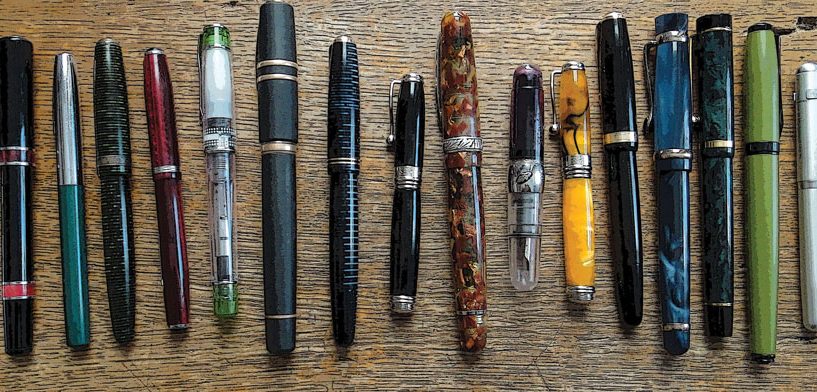By Jamie Etheridge
I am addicted to pens. Or rather, not addicted exactly, but more like fixated. I want; I need a very specific type of pen. My preferences are absolute: extra fine point (7.0); rollerball ink; variety of colors (I’m especially partial to blue, orange, purple and green and my daughters both like pink). It should have a slim barrel, capped (never retractable) and lightweight. There should be enough ink to last a few months. It may sound eccentric, but I will go out of my way to find the right pen – visiting shop after shop, driving half way across the city or in some cases ordering cases of them online and shipping them to Kuwait.
I know this sounds silly. A pen love so strong, someone would pay KD 30 just for shipping! But hear me out. Most of us, even if we don’t realize it, have a special relationship with some of the objects in our lives. Imagine the love a guitar player feels toward his instrument, or an architect for her drafting table.
Pens are to writers as knives are to chefs. A good pen is essential for facilitating the desire to write. (And don’t even get me started on notebooks!) Even though I now spend hundreds of hours typing on my computer keyboard for every minute spent writing longhand in a notebook, the right pen still holds a place of reverence in this writer’s life.
Stop and think for a minute about the objects in your life that you can’t live without. Most of us would immediately say: mobile, car keys, wallet, bag. But what about your favorite cooking pots and pans if you are a foodie? Or your favorite clubs if you’re a golfer? How do you think an artist feels about her paints or paintbrushes, or a bricklayer about his trowel, or a solider about his gun?
Objects are more than just the price we pay for them. The tools we use in our lives to create, to build and to work also in many ways shape our experience. They inform our physical experience of the world, influence our emotional states, serve or hinder our ambitions and can, in many respects, be the servants or barriers to our success. From an early age, children often attach importance to objects, usually soothers like pacifiers or security objects like blankets or a special stuffed animal or doll. They typically rely on them when feeling anxious or tired.
But as adults we shift from relying on objects as soothers to utilizing them as tools. We might still attach special significance to a beloved family heirloom or favorite photography. But the tools we rely on in our daily life – especially in our professional life or when practicing our passions or hobbies – become, in a sense, a part of who we are. We treat them as a natural extension of ourselves, another hand or eye that helps us achieve whatever we’ve set out to do. They are not to be revered, however, but to be used.
Jamie Etheridge is a writer and mom of two living in Kuwait. She is the founder and editor of the Kuwait Moms Guide. Follow her on Instagram @kuwaitmomsguide or you can visit the website www.kuwaitmomsguide.com.











